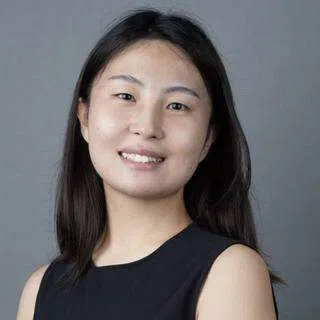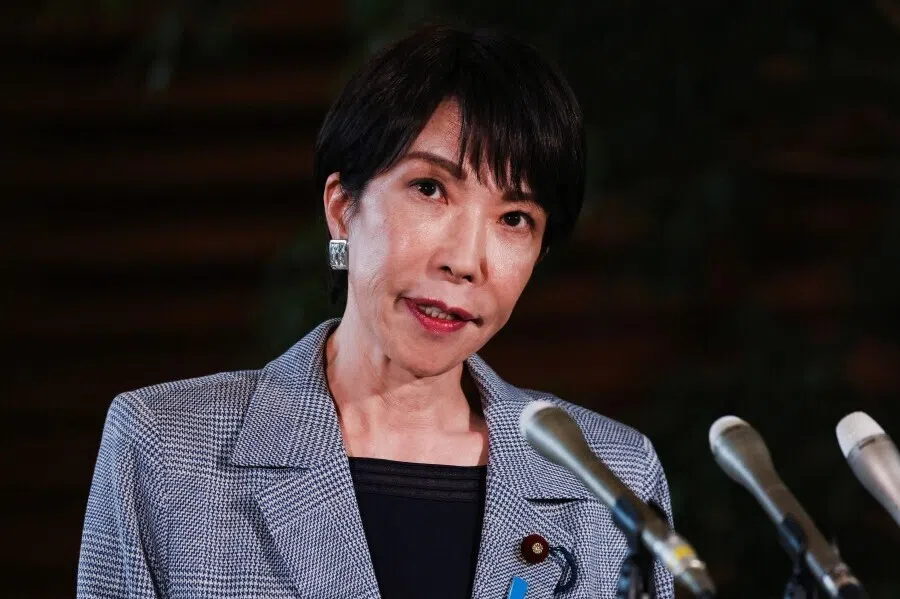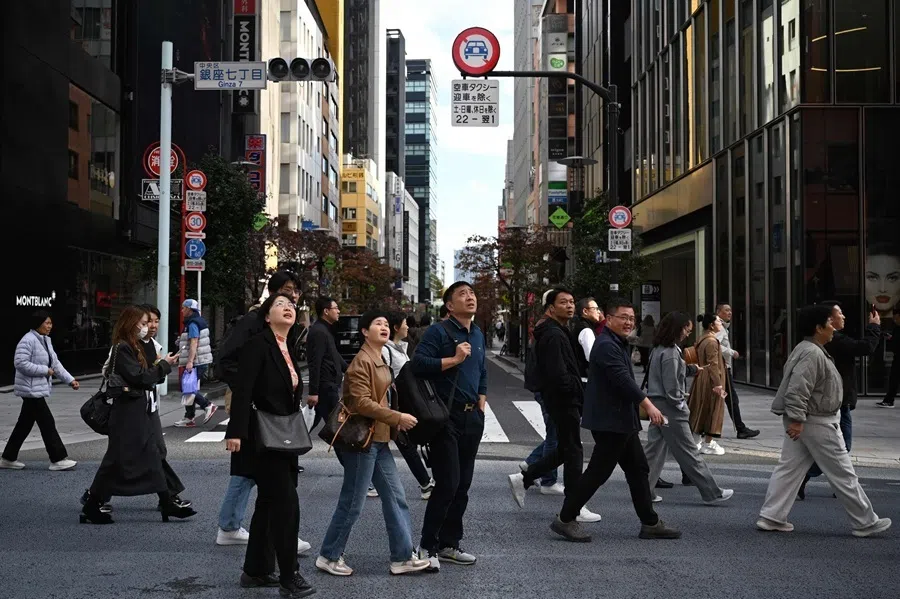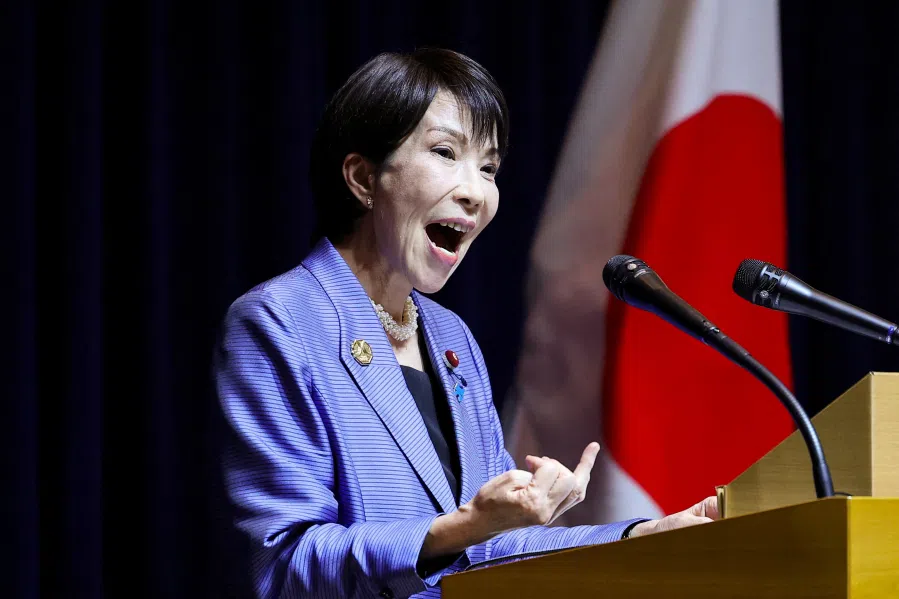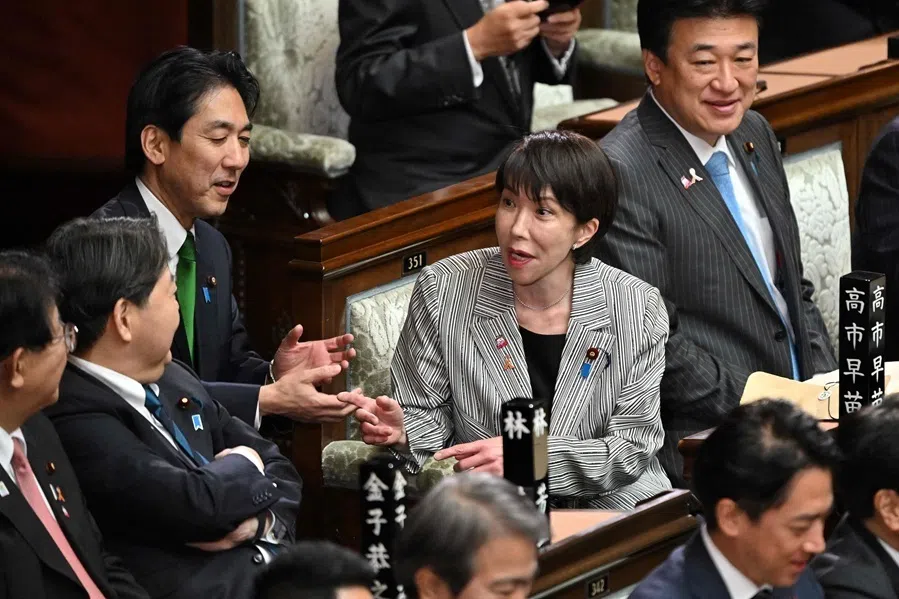Sacrifice and legacy: How Hi-P founder Yao Hsiao Tung gave it his all for family and business
At 84, Yao Hsiao Tung, founder of Hi-P International, once sacrificed his own finger to inspire his brother to change his ways. He has applied that same unwavering determination to his contract manufacturing business as well. In an interview with Lianhe Zaobao journalist Li Yaning, Yao reflects on his past challenges and the future of his company.
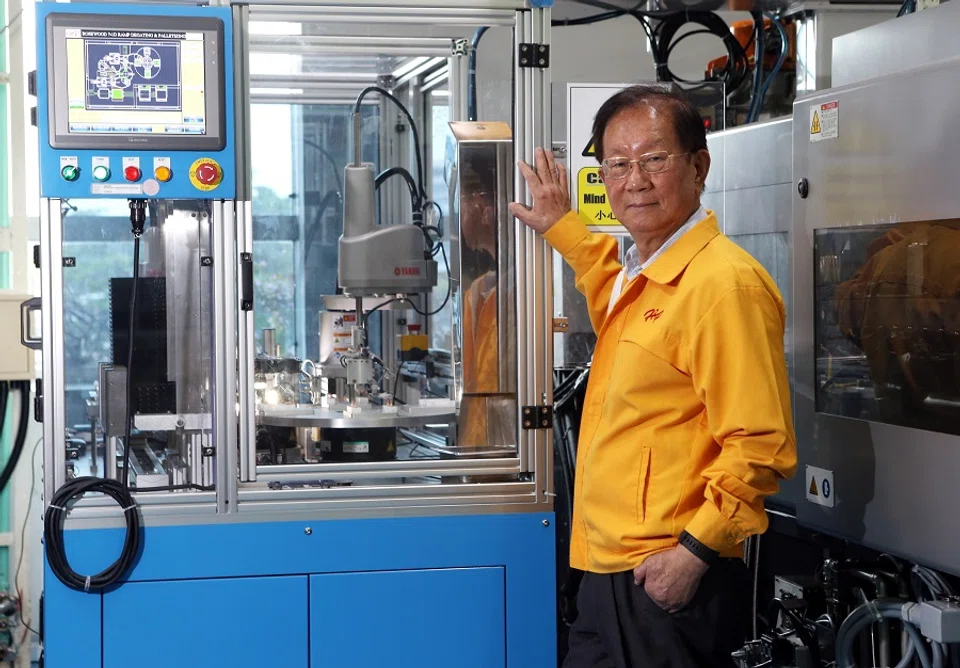
“I want to share my big plans with you here today. Some people may find it a bit of a joke, for an 84-year-old to be still talking about his big plans.”
On the evening of 30 September, Hi-P International founder and executive chairman Yao Hsiao Tung, opened his Lianhe Zaobao Springboard initiative fireside chat with the youthful audience. The energetic and clear-minded 84-year-old spent over two hours sharing his 40-year entrepreneurial journey.
From mainland China to Taiwan to Singapore
Hi-P International is a Singaporean manufacturing titan that produces components for famous brands like Apple, Dyson, and Tesla. From the initial founding team of six to nearly 20,000 employees now, from an initial annual turnover of S$100,000 (US$76,500) to S$2 billion today, Yao has helmed the company for more than four decades. Despite his remarkable achievements, he still has unfulfilled ambitions.
Yao was born in Yunnan, China in 1940, the eldest of four siblings. When he was six years old, his family moved to Taiwan with his father. As his father kept changing jobs and locations, Yao had a turbulent and difficult childhood. Seeing his mother sigh at a nearly-empty rice jar planted the seeds of his subsequent entrepreneurship, as he determined to work hard to give his parents an affluent life.
At the age of 32, Yao joined the Dupont branch in Taiwan, in charge of designing moulds. In 1979, the company sent him to Singapore to set up a factory; he decided to accept the challenge and came to this unfamiliar land with his wife.
‘Dark days’ as an entrepreneur
In 1983, with over 10 years of experience and a monthly salary of S$6,000, Yao decided to resign and strike out on his own. He was prepared for tough times, and even sold his car and rented a van instead.
However, the setbacks were far greater than expected. The global economic recession at the time made it very difficult for Yao to expand his business. He recalled, “We pooled together S$200,000 to start the company. Two or three years later, there was only S$90,000 in cash left in our company account, but our bad debts totalled S$130,000 and we owed more than we were earning.”
“Starting a business is having to find some way to survive after falling into the sea.” —Yao Hsiao Tung, Founder and Executive Chairman, Hi-P International
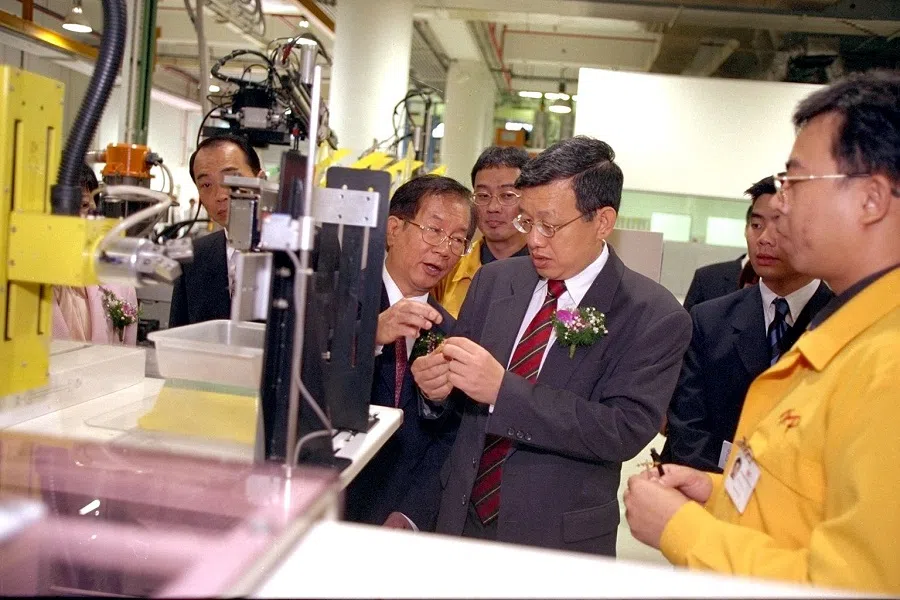
Yao recalled that he put in long hours every day but could not find customers. At night, he tossed and turned as though lying on a bed of needles. Once, when he was at a meeting with a customer, his wife phoned to get him to come out immediately: “The power company is going to cut off our electricity!” As he scrambled for money to foot the electricity bill, he felt like he was “in darkness”.
“Starting a business is having to find some way to survive after falling into the sea.”
Yao did not give up. Instead, he held on in the dark until finally there was a turning point. In 1987, Joseph King, the regional president of Molex, an American electronic components supplier, contacted him and invested S$140,000 for a 35% stake in Hi-P. While the sum may not seem like much today, it was a timely aid. More importantly, Molex’s investment also brought business orders that allowed Yao to successfully turn Hi-P around.
Following Molex’s investment, Hi-P received more and more orders. The company steadily got on track — from making mould parts, to entire moulds, and then to manufacturing whole machines.
He realised the importance of cohesion, and immediately communicated with the remaining managers and employees to listen to their opinions and demands, and paid attention to rewarding and valuing his staff.
Chinese market leads to big profits and a management crisis
The second major turning point for Hi-P was a visit in 1992 to the Shanghai Mould Institute of Technology (上海模具研究所). Presented with an emerging market with a huge population advantage, Yao decided to set up a factory in Shanghai. “Labour cost in China was very low then. By taking orders in Singapore and producing mould parts in China, then shipping them back to Singapore for assembly, we could make profits of up to 80%.”
Yao recalled that at the time, China’s mould manufacturing industry was just starting. Hi-P was one of the first companies to enter the country and nurtured many Chinese talents, and was even dubbed the industry’s “Whampoa Military Academy”.
However, an outflow of talent also plunged the company into crisis. In 2000, Hi-P Shanghai’s general manager resigned, bringing with them some 60 managers and core technical staff, or more than 10% of the company’s strength, almost collapsing the company’s management structure.
Yao learnt a profound lesson from the incident. He realised the importance of cohesion, and immediately communicated with the remaining managers and employees to listen to their opinions and demands, and paid attention to rewarding and valuing his staff. It took a year to turn the crisis around.
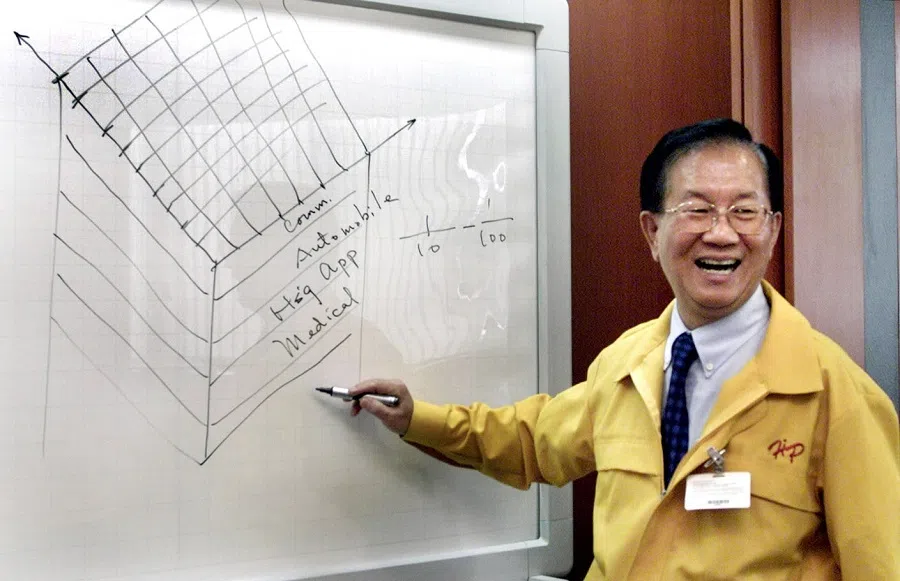
On 17 December 2003, Hi-P was listed on the Singapore Exchange. The company soared as its share price doubled just one year after the listing.
Yao speaks of his company’s milestones with pride. “In less than 30 years, there has been 10,000-fold growth. In 1987, revenue was S$100,000. It became S$10 million in 1994, S$100 million in 2001 and S$1 billion in 2008!”
However, things are unpredictable. After 2008, Yao and Hi-P went through 12 years of stagnance.
More upheavals
Yao reflected that there were numerous reasons for the slowdown, including the impact of several organisational structure upheavals, its 2011 takeover of Motorola’s Singapore design arm failing to pay dividends, and its failed efforts in developing new businesses. The results were painful, as Hi-P missed out on the opportunities arising from China’s economic boom between 2006 and 2021.
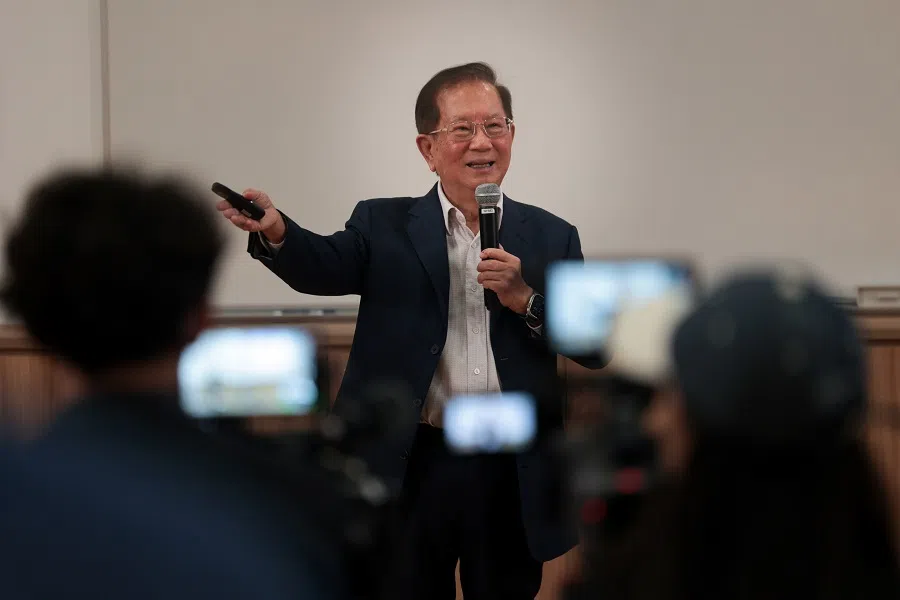
That was a dark period. For Yao, the glory of receiving the “Top 10 Industry Leaders” (企业十大领军人物) award at the Great Hall of the People in 2003 feels like yesterday; however, some Chinese competitors that were far inferior at that time are now dozens of times larger than Hi-P.
On 21 April 2021, Hi-P was delisted from the Singapore Exchange.
After that, Yao decided on a fundamental revamp of the company structure. He rebuilt the team, established an effective incentive mechanism, empowered team members, and distributed company profits as dividends to employees.
In 2022, Hi-P resumed its upward trajectory. While the shadow of the pandemic lingered, the company grew by 20% that year and profits increased by 40%, and Yao rewarded employees with S$28 million, or 17% of its profits.
No less ambitious than young people
After founding and helming Hi-P for over four decades, and despite setbacks and disappointments, Yao is still thinking of moving forward rather than giving up or pulling back.
In fact, in 2017 when Hi-P’s growth was slow, its former patron — Molex — approached Yao and offered to buy over Hi-P. Yao courteously declined. “Sorry, but Hi-P is not for sale.” Instead, in the end Yao bought back Molex’s 35% stake in Hi-P at S$300 million, giving Molex a return of more than 2,000 times for its life-saving investment.
Yao said that he has told many people that Hi-P is not for sale. That is something he holds to, behind which is ambition.
He said that to be an entrepreneur, one needs to be a little “reckless”, and to stay ambitious regardless of circumstance or age.
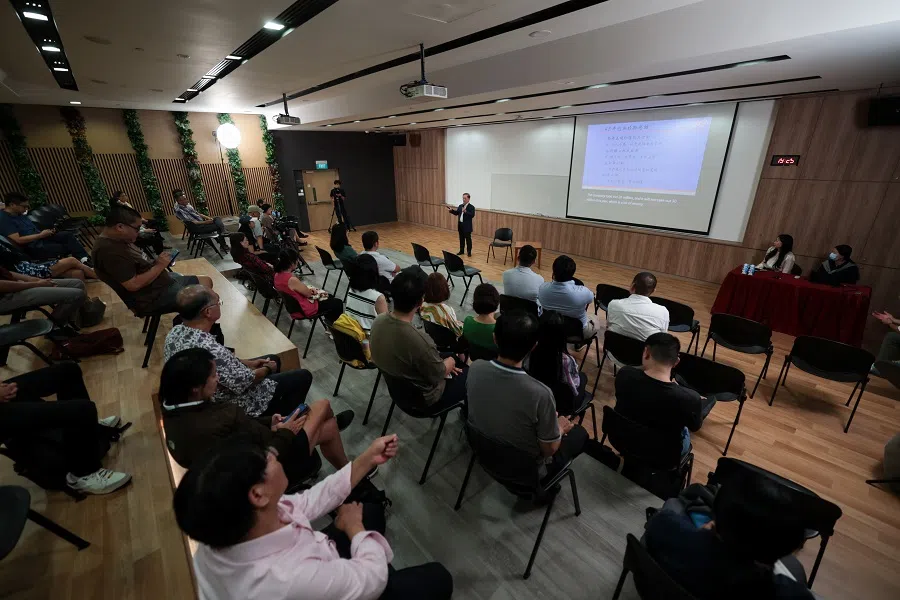
He shared with the young people in the audience several points about his experiences as an entrepreneur and businessman, one of which is ambition. He said that to be an entrepreneur, one needs to be a little “reckless”, and to stay ambitious regardless of circumstance or age.
With Hi-P developing steadily, Yao has set his sights on the latest artificial intelligence (AI) trend. “There is a saying that ‘even pigs can fly in strong wind’, so we hope to seize on the AI gust. The application of AI in the Internet of Things and smart cars require five components — connectors, relays, switches, sensors, and antennas, so we will expand into this area.”
He has also set a target for himself before turning 90: to increase Hi-P’s revenue eightfold between 2025 and 2030, with annual average revenue growth of 40% — 20% from organic growth and the other 20% from mergers and acquisitions.
To realise these growth targets, he is planning to re-list Hi-P, which he privatised a few years ago.
Geopolitics and the global economy are constantly evolving, and Yao has made his plans and preparations. “I have more than a dozen factories in five Chinese cities, but we also have to deal with the Sino-US trade war. So, I have five other bases in Vietnam, Thailand, Malaysia, Singapore and the Philippines. We have also recently been planning to set up a factory in India.”
Caring for family and employees is a way to give back to society
Looking back on over four decades as an entrepreneur, he feels that besides ambition, self-discipline and innovation are also important qualities. While he did not study finance, materials, and logistics, he continues to learn and grow in entrepreneurship. He feels entrepreneurs must keep up with the times in order to spot the slightest of opportunities and find their own value. He is strict with himself — he goes to bed at 10:30 pm, does not indulge in amusement, and can still swim 25 metres of the butterfly stroke without stopping.
Yao also feels one has to hold to the correct values and direction. The several personnel upheavals in the past have been revelations, and he often mentions his employees. “I believe that I should contribute to society, and the people closest to me in society are my employees, so I should give them the rewards they deserve.”
Yao then did something shocking — he took a chopper and hacked off part of his little finger, before telling his younger brother that he mattered more than his limbs. This shocked his younger brother into repentance.
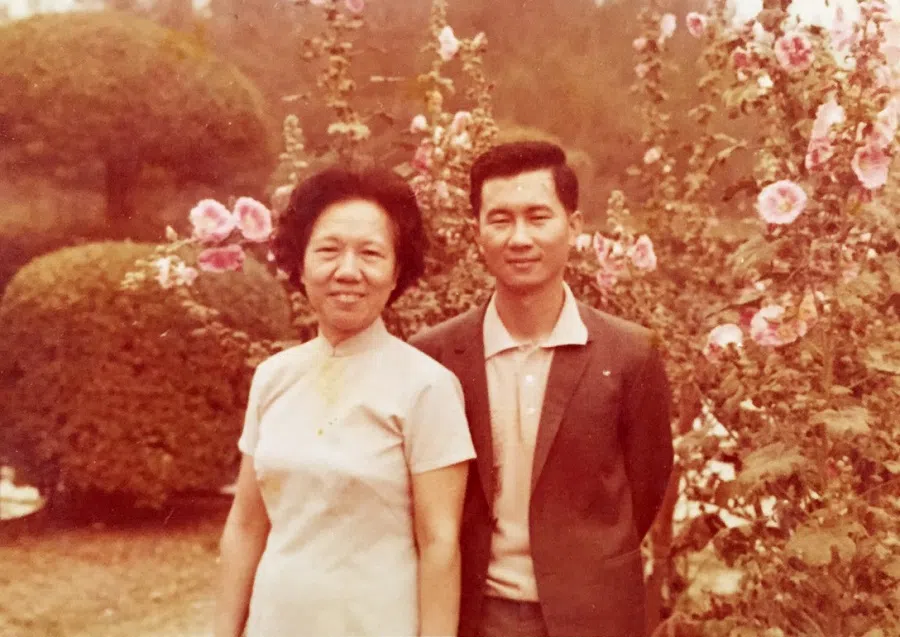
Yao loves his family deeply, and witnessing his parents’ difficulties in life was the moment he first thought of starting his own business. Speaking of his family, he shared a secret he has held for years. After completing his national service in the military in Taiwan, Yao returned home to learn that his younger brother, who had excellent grades in primary and secondary school, had dropped out of junior college and become a gang member.
Despite Yao’s emotional pleas, his brother rebuked him and insisted on sticking to his path with no regrets. Yao then did something shocking — he took a chopper and hacked off part of his little finger, before telling his younger brother that he mattered more than his limbs. This shocked his younger brother into repentance.
Yao said that this is probably the most unforgettable incident in his life. Every time he sees his hand, he would think of the past, but he has no regrets. This is his greatest forbearance and love for his family.
To a certain extent, his family has shaped Yao. When Yao was a child, his father kept changing jobs and family finances were tight. Young Yao had to take on the responsibilities of doing the laundry, cooking, collecting firewood and charcoal, and taking care of his younger siblings. However, these childhood experiences became valuable life lessons that helped him overcome difficulties. “While I could not choose the environment I grew up in, it tempered me into the person I am.”
This article was first published in Lianhe Zaobao as “赫比国际执行主席姚晓东:大半生驰骋商场 84岁千帆过尽再启航”.
